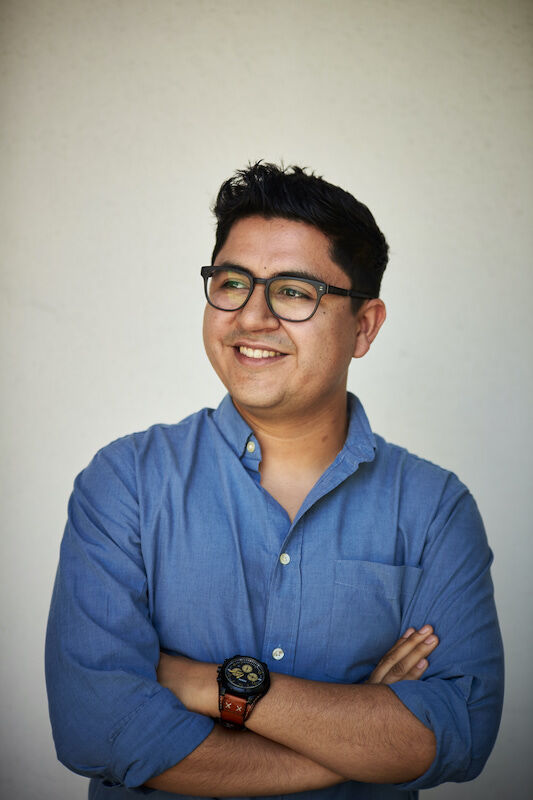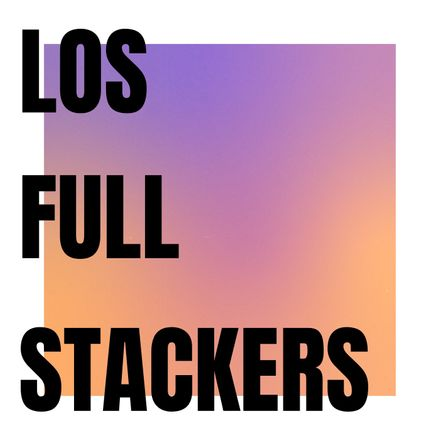If you’ve been spending as much time at home as I have, you have probably developed a few hobbies or maybe you have used this time to expand on a few. Never in my life, would I have imagined thinking of putting together a podcast, and yet to some extent, it has also been a source of introspection. I am rediscovering a few truths. Engineering is hard, navigating corporate America even more.
Let me introduce myself, my name is José, an engineer with the heart of a filmmaker and a Julio Cortazar enthusiast reader (if this is the first time you hear about him, check out his novel Hopscotch). I did not study film, but I did spend some time taking courses in film classes at UCLA during my undergrad years. I mean, I could not resist, especially knowing directors of the magnitude of Francis Ford Coppola and Alexander Payne had enrolled there at one point. It all lined up really well when I decided to become a Bruin - the birthplace of the internet to study Computer Science, and a highly recognized filmed school to pursue my hobby as a film aficionado, what else can I ask for? Well, just like any good movie plot that respects their audiences’ intelligence, studying engineering gave me a set of excellent learning experiences where every quarter would teach me a new dimension about computer science: Algorithms and Complexity, Database Systems, Operating Systems, to say a few. Even then, the biggest plot twist starting from my early college days was navigating four questions: how do I apply these in my career? How do I prepare? Why do some jobs use programming languages that my school does not teach? Why do interview questions feel a bit orthogonal to what I studied?
"Engineering is hard, navigating corporate America even more."We all need a bit of an oracle (this might make more sense if you recall The Matrix) in our lives, after all, we are not more human than human. In The Matrix (1999), there’s a scene where the main character Neo is trying to understand his role in the film. He never gets detailed information on what he must do to find all the answers he is looking for. In fact, he ends up with more questions than answers. But then at the very end is when he realizes that all he needed was a few words to cultivate his craft. Although I’ve got some amazing advice from mentors across my career, I did not learn any moves (though, that would have been cool).
One of those mentors showed up in my life during my first internship. In a nutshell, they summed up tech careers pretty well, “books are great reference points, but real problems don’t always match problem sets.” Their advice gave me insights and introduced me to technologies that I would use even up until this point such as Git and Python. The second realization is running into someone who not only knew more than me but had experience navigating tech. That is the key. There’s an old saying my dad taught me that goes something like “to howl like a wolf, you have to hang out with other wolves.” I did not turn into a werewolf or anything of that nature after my first internship, but I picked up lessons that inspired curiosity to go even further in studying computer science. That is the power of passing down knowledge, it paves the road to ask questions and continue cultivating our curiosity. For example, reading about Python led me to learn Django which then taught me about deploying an app which then taught me about continuous integration.
"Books are great reference points, but real problems don’t always match problem sets."Amplifying voices is one of the best tools we have to empower others. In my most recent gig, I met colleague and friend Carlos Lopez (Charlie) who is also a fellow software developer. We are into picking up new technologies and trying to improve our craft. Yet, we kept thinking that most of the content we keep finding online is primarily English, or if there’s content in Spanish it tends to be a bit outdated or lacks maintenance. Then we thought, “Hey what if we combine our journeys and share it in English and Spanish?” At first, this sounded a little outlandish, not to mention neither of us had ever released content in Youtube or any sort of online medium. Also, there were a few logistical questions on the table: should content only about tech? What other topics would we like to talk about? Then we thought about the following: what would Charlie and Jose have found useful at earlier stages of their careers? This really opened up possibilities in terms of content. Naturally, the last question was, what platform do we want to use to deliver content? Podcasts becoming so popular in the past years, this was a no brainer in our checklist. And at that point, Los Full Stackers were born.
Los Full Stackers is a place for growing and developing—and I would even call it a place for empowering new and upcoming professionals looking how to get started in tech. There is a wide range of tech companies in Silicon Valley and across many cities in the United States that finding where the road starts can be a bit intimidating. By no means Charlie and I know the answers to all that is there to be known about tech—even for us is still an ongoing journey. When we reflect back on where we started, not knowing a programming language or how to prepare for a coding interview, we honestly feel a bit of help could have been beneficial. When we find voices or advice of people with similar backgrounds we get hope that it is possible to succeed. As we build and select content for our episodes, we want to spark curiosity among our listeners. In fact, walking away with something you can look up or try yourself is definitely one of our goals. Our current content up to this point consists of topics on how to prepare for software engineering interviews, choosing your first stack (this is a common term to identify what technologies you are using to build your next software application). In more recent episodes, we had guests from pedigree institutions like Pinterest and UC Berkeley who have joined to share conversations on Diversity, Equity, and Inclusion—a discussion that we need to keep having more than ever in 2020. The intention of the podcast is to talk tech, but also to bring social issues that affect those in it on a daily basis. To some extent, Los Full Stackers is a product of observations that Charlie and I have made where we would like to create content that helps members of our Spanish speaking communities navigate some of the trails we have encountered either by direct experience or stories shared by colleagues who have given us pearls of wisdom along the way.
If there’s anything we have learned from school or working in tech, we are convinced that we have to be the change we would like to see in our industry by taking action. We are only a few episodes into the podcast, but there’s a long journey ahead of us. There will be more episodes on professional development and how to keep building your portfolio coming up in the foreseeable future, but we are definitely open to suggestions. Again, Los Full Stackers is an effort to help the community and we would love for you to join us in shaping our journey.
https://redcircle.com/shows/los-full-stackers
https://twitter.com/losfullstackers
https://www.youtube.com/channel/UCLYV2E3011ggMyhN3RnfXUg
https://open.spotify.com/show/51HCMKw5BZuGDVAFn8HKTI?si=Nw4g0mZgQCSNNtpYoj964A



